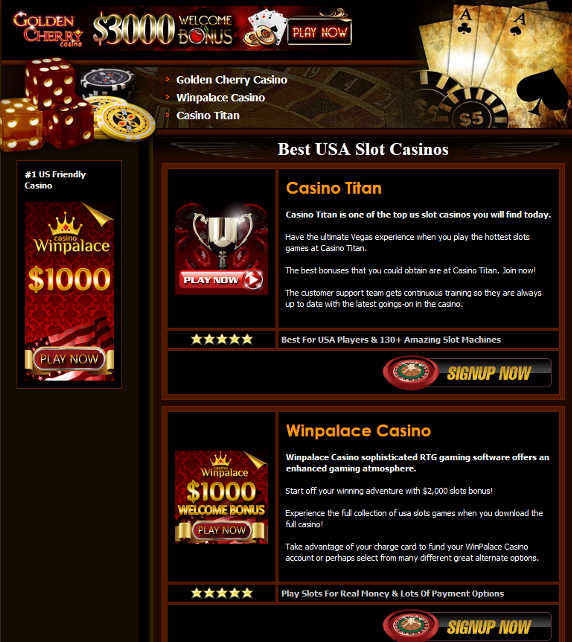Compliance
Enterprise SEO Blog
If you never have had that reaction, you probably need to pay closer attention to what your competitors are doing, because the more competitive the search, the more likely there are players successfully gaming the results.
Here in the US, with the gaming (ie. gambling) industry preparing for the legalization of online casinos in some states, the searches associated with the most valuable keywords are set to become super competitive - you would think (incorrectly) that they already are and have been for years. What's really changing is the importance of the USA geo component for the longtails. We know these searches are valuable because this is one of the fields that gets plenty of enforcement action from Google, and at the same time, plenty of black hat activity that goes undetected for long periods of time. What's really surprising is the low bar for entry in these searches.
Take this search: "online slots usa"
Since the results will very likely have changed by the time you read this, here are some screen shots from 23 March 2013: (click for larger views)
Note that positions #3 & #6 are held by two urls from .edu sites. Anytime you see a school domain ranking very high in a gaming search, that's usually a sign of a successful rank insertion. Look more closely and you'll see these are single pages, not websites. Even closer and you'll see they're supported with hidden links from other school related (possibly hacked) sites.
Here are the one page casino affiliates that the clicks reveal: (click for larger views)
The top of this search is actually very weak in terms of link numbers. The reason for this is that Google's enforcement actions killed off the sites with huge numbers of links with the advent of Penguin. The #2 site has only 8 links from only 4 domains (Majestic), and the #1 site has 450 links but from only 3 domains!
The #3 rank is supported by, among other things, only 15 links from only 8 domains (according to Majestic), some of those links are on http://www.inspiringteachers.com/, a seemingly innocent site. A look at their source code shows 2 sets of hidden links with this structure (for clarity we removed all but the money link):

We can also see that by hovering over the links to the casinos involved, that the affiliate code associated with these urls is the same - it's the same entity that achieved both of these results.
This is impressive. These are big money terms, and from our experience, at a minimum this is probably worth a 2-5 grand per month in affiliate income. So there's plenty of motive here, and if you can keep this rank or keep swapping out pages as they get discovered & penalized, it's clearly worth some dev expense to keep these balls in the air.
What's really counter intuitive is the small number of links it took to pull this off - this is clearly a link driven insertion, since the content is no way going to hold this rank on its own. But using only 8 domains?
If you think that's surprising, take a look at this next example. Here is the top of the search for "online slots" as of today:

This is NOT the geo search - this is the global search for online slots. Using link data from Majestic, the #1 url, http://www.freeslots.com has 11,065 links from 889 domains. The #2 url is http://www.luckynuggetcasino.com/online-slots/ with 8,482 links from 247 domains. These numbers are more in line with what we would expect - lots of links.
But here's the amazing part: The #3 position is held by http://www.reviewslotsonline.com with only 15 links from only 8 domains (Majestic) supporting this position. Now granted we don't have access to WMT, and the numbers might be much larger there. But I've been watching this for a while and this rank has been holding, and those link numbers have not increased during that time.
Again, very impressive, both for the high rank and for the low overhead to achieve it.
Another very important point, especially if you're a Google believer. If you've been reading about authorship trust, you know that Google has been touting authorship as a way to 'confirm' your legitimacy. The claim is that people (and Google) might 'trust' your content more if attribution is present. And by placing your name & image as the author of the content within the search results, your content is supposedly more credible. With that in mind, take a close look at that #3 search result and tell me if you have more trust for that author, identified as Jess Pitt, because of this attribution - looks like a cartoon character to me.
It often seems as if there's a basic unfairness in the search that our penalty work makes very obvious. Most owners of penalized sites are victims (of seos and ignorance) and are not criminals or intentionally evil implementers of internet fraud. They lose their ranks when penalized and then spend large amounts of time and resources to recover, while these brilliant outliers run circles around them by gaming Google and either not getting penalized, or having plans to deal with those penalties when they occur. It's obviously not a model that a stable commerce site can rely on, but it does make one stop and think about it.
In closing, remember that whatever you think about the way these ranks are attained, it's not illegal, and not necessarily unethical. I always get flack for saying that last part, because most people associate gamed ranks with some kind of evil. And if the ranks are attained by putting content & links on hacked sites, then there might be some argument on the ethical front. But the gaming of Google by itself is not unethical - everyone wishes they could pull this off. The guys who succeed are doing it for the money, and will continue until Google is able to detect and enforce more robustly - these are the players that keep Google on its toes. You might even be able to argue they're doing us all a service. But if I were Google, I would see this as a huge & continuing embarrassment.
Related older post on gaming Google in the gaming industry here.
re1y.com
Enterprise SEO
Google Penalty Solutions
Automation & Search Compliance




